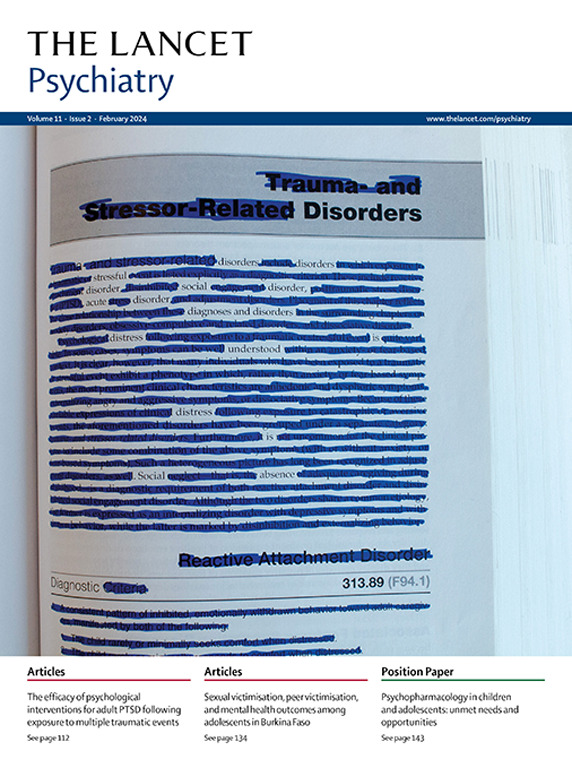Lithium as a disease-modifying drug for bipolar disorder
IF 24.8
1区 医学
Q1 PSYCHIATRY
引用次数: 0
Abstract
Lithium is a classic, primary treatment for bipolar disorder that has paradoxically been used less over time, especially in North America, which goes against the accumulating evidence for its efficacy. Bipolar disorder is increasingly conceptualised as a chronic, potentially progressive condition worsened and accelerated by each mood episode, which might resemble multiple sclerosis or rheumatoid arthritis as a condition that requires disease-modifying treatments to change illness trajectory. In this Personal View, we argue that lithium acts like a disease-modifying drug in bipolar disorder. Although the pathophysiology of bipolar disorder remains unclear, many of the mechanisms implicated in bipolar disorder, and the surrogate markers associated with this condition, are uniquely affected by lithium treatment from the DNA and cellular levels to the structure and function of the brain and other body systems. Clinical trial and cohort study evidence shows that lithium is effective and probably superior to other medications used to treat bipolar disorder, and that long-term outcomes are better with lithium than non-lithium regimens. Conceptualisation of lithium as a disease-modifying agent might help to increase clinical use by doctors, especially early in the disease course to better serve our patients.锂作为一种治疗双相情感障碍的药物
锂是治疗双相情感障碍的一种经典的、主要的治疗方法,但随着时间的推移,锂的使用却越来越少,这是自相矛盾的,尤其是在北美,这与越来越多的证据表明其疗效相悖。双相情感障碍越来越多地被定义为一种慢性的、潜在的进行性疾病,每次情绪发作都会加重和加速,可能类似于多发性硬化症或类风湿关节炎,需要通过改善疾病的治疗来改变疾病轨迹。在这个个人观点中,我们认为锂在双相情感障碍中的作用就像一种疾病改善药物。尽管双相情感障碍的病理生理学尚不清楚,但双相情感障碍的许多机制以及与该疾病相关的替代标志物都受到锂治疗的独特影响,从DNA和细胞水平到大脑和其他身体系统的结构和功能。临床试验和队列研究证据表明,锂是有效的,可能优于用于治疗双相情感障碍的其他药物,锂治疗方案的长期疗效优于非锂治疗方案。锂作为一种疾病调节剂的概念可能有助于增加医生的临床使用,特别是在疾病过程的早期,以更好地为我们的患者服务。
本文章由计算机程序翻译,如有差异,请以英文原文为准。
求助全文
约1分钟内获得全文
求助全文
来源期刊

Lancet Psychiatry
PSYCHIATRY-
CiteScore
58.30
自引率
0.90%
发文量
0
期刊介绍:
The Lancet Psychiatry is a globally renowned and trusted resource for groundbreaking research in the field of psychiatry. We specialize in publishing original studies that contribute to transforming and shedding light on important aspects of psychiatric practice. Our comprehensive coverage extends to diverse topics including psychopharmacology, psychotherapy, and psychosocial approaches that address psychiatric disorders throughout the lifespan. We aim to channel innovative treatments and examine the biological research that forms the foundation of such advancements. Our journal also explores novel service delivery methods and promotes fresh perspectives on mental illness, emphasizing the significant contributions of social psychiatry.
 求助内容:
求助内容: 应助结果提醒方式:
应助结果提醒方式:


